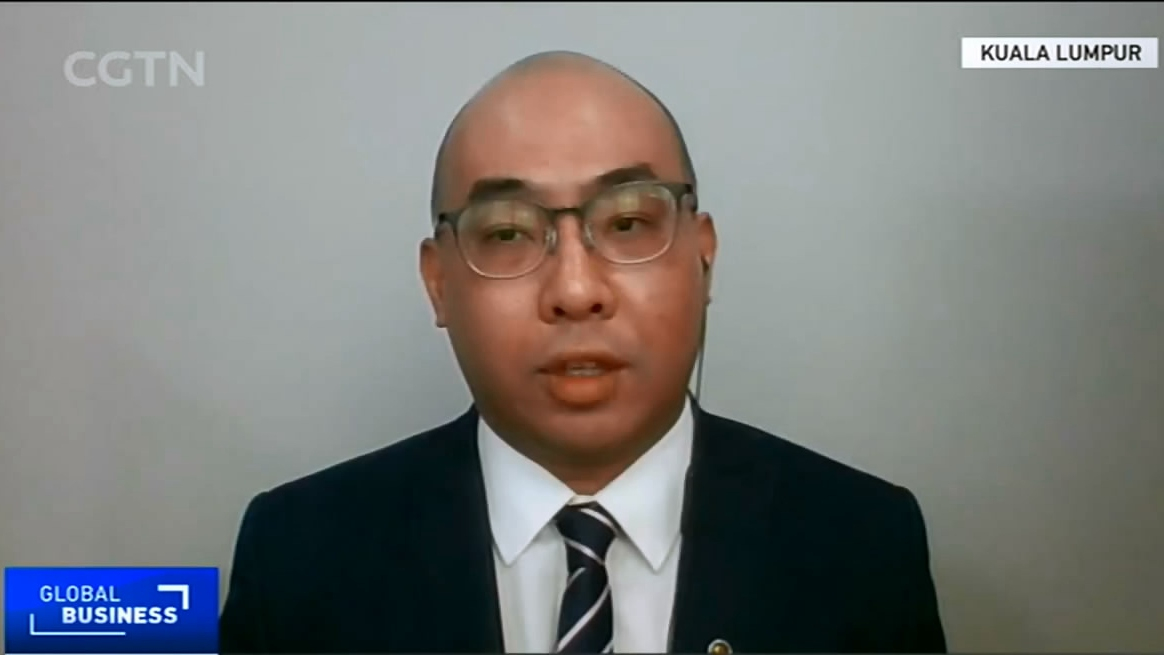The Organization of Petroleum Exporting Countries (OPEC) projects that its share of world markets will shrink until the middle of the next decade. Given that OPEC+, the alliance with non-OPEC oil producers, is going to formalize additional cuts of 500,000 barrels per day, FXTM market analyst Han Tan observes the move to shore up Brent Futures above the psychological level – 60 U.S. dollars per barrel, but not send Brent futures "through the roof."
This is "because a quantum of 500,000 barrels per day will only formalize what OPEC members and their allies are currently doing," Han told CGTN, arguing that even a lower production will have a limited impact on shoring up the price.
"For example, Saudi Arabia is willing to deepen their production cuts beyond what they were mandated to do. If production is again lowered by the quantum, I think it'll have a limited effect shoring up," he said.

FXTM market analyst Han Tan during an interview with CGTN Global Business. /CGTN Photo
FXTM market analyst Han Tan during an interview with CGTN Global Business. /CGTN Photo
OPEC's projection came after it slashed estimates for the amount of oil it would need to pump in the coming years. The organization's annual report said that demand for its oil would slide by about seven percent over the next four years, slumping to an average of 32.7 million barrels per day in 2023.
The analyst attributes the slowdown to "the green bias among policymakers," electric vehicles' weighting up, as well as the boom in U.S. shale oil supply. The U.S. has become the world's top oil producer by developing hydraulic fracturing, commonly known as "fracking," in Texas, North Dakota and other states.
"We find ourselves in a world where OPEC members and their alliance actually pulling back on production, while U.S. shale output is expected to grow next year. And that's why OPEC market share for the global market is expected to be reduced from about 35 percent to the lower 30s – about 32 percent by 2025," Han observed.
He believes that global demand for oil will keep growing, but just at a slower pace over the next two decades.
"There's still a lot of inertia to overcome in the energy space and there's still also a lot of growth in particular right here in our backyard here in the Asian region. So I think that should bode well for the overall growth for oil," Han said.
Moreover, the analyst noted that the OPEC members should diversify their economies away from oil revenues.
"You have seen Saudi Arabia, the UAE and Kuwait as well, each having their respective timelines to diversify their economy. So it's not just mere forecasts. We are seeing active policies and active will in trying to move away from this reliance on oil," he said.